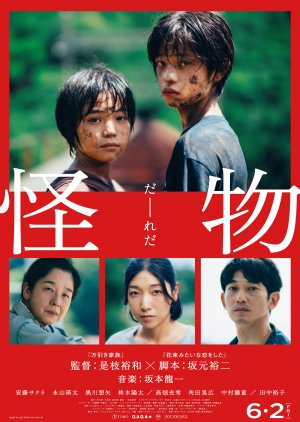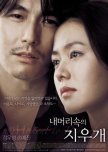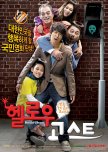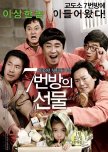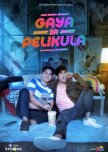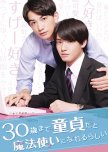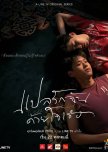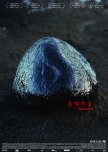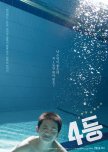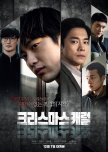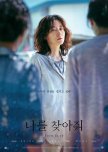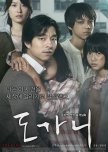
This review may contain spoilers
“Who’s the Monster?”
“You have an amazing talent”“Do I bite and poison others?”
“No, but when you’re attacked you let go of all your strength and give up”
“That’s not a strength”
“You stop feeling”
“Am I Hoshikawa Yori?”
I really couldn’t put it into enough words how phenomenal this movie was in the sense that it just, completely overwhelmed me. The thing about children is that yes, their worldview differs from those that are older than them, and yes maybe they don’t, perhaps, fully understand the complexities of life as adults, But i feel that more often that not, children are aware of things; they think and feel and process feelings just as we adults do too. However, there’s a certain rawness, a brutality to the truth that they don’t avoid.
Listening. To not simply hear what is being told to you, but to truly listen and understand. Throughout the entirety of this movie we are led to believe that there is one big mystery that must be revealed. Is Mr Hiro truly the “Monster” that he is portrayed to be, or is the monster Minato? Perhaps even Yori? At different points in the film we are led to believe that this ugly truth could be that this was either a detailed scheme conducted by two disturbed young boys looking to wreak havoc, or that there was a cruel teacher who has been abusing his authority and his pupils. We are even led to believe that Minato could be monster who had been caught by a classmate killing a cat (Allegedly). We see as Minato’s mother Saori jumps through hoops to defend her son from who she believed to be a monster, an abusive monster: Mr Hori. She searches for answers that would support her beliefs and feeds them, recklessly discarding anything that doesn’t align with her version of events. A notable example of this would be when the possibility of her son being the “monster” is suggested to her but she vehemently rejects this idea completely. In an attempt to prove Mr Horims guilt and in turn, Minato’s innocence, she visits Yori and instead of listening to him, gets him to corroborate a story that paints Mr Hiro as the abuser.
Now, Mr Hiro can indeed be seen as a victim here as he goee through his fair share of suffering as a result of false accusations. However, he is not completely innocent and also fails to pay attention and listen. Listen to the children. After being accused by Minato and his mother of physical abuse, he pleads his innocence adamantly, failing to realise that his actions come across aggressive and unhinged especially towards the children. Hori begs for the testimony of a student of his who states she witnessed Minato hurt a cat and begs her to show that he isn't the monster everyone claims that he is, but rather that Minato is. Here is one of the many mistakes the adults in this film make. They fail to listen. Yes they hear what these children tell them, but they only hear what they want to hear, which is why when he begs her to tell the principal that she saw Minato kill that cat, to prove his innocence she claims that, that is what she said, and she would be correct. At her response he lashes out and she is frightened. What all these adults fail to recognise all along is, that the real ‘monster’ had been there all along. Right under their noses.
Saori visited the house of the monster, and hell, Mr Hiro even met him himself. If they had not been so caught up with their own problems, fuelling their own narratives, they would have recognised the bigger issue at hand: Yori’s abusive father, The Real Monster. Upon visiting Yori’s house, Mr Hiro hears the words that started this all, come out of Yori’s father’s mouth. “His brain has been switched with a pig’s”. Yet Mr Hori doesn’t question this, or even attempt to connect the dots. Saori saw the burn marks and bruises littering Yori’s body, and rather than asking who they were from, or why he was so comfortable being left at home for long periods of time, she asked if it had been Mr Hiro who had inflicted the wounds. Another failure, another missed chance to save Yori from the monster.
For Yori and Minato, there was no doubt in their mind who the monster was, and they had not once wavered from their belief in this. For these two boys, the truth was so abundantly clear to them, the monster was Yori’s father. Whatever was going on with Mr Hori, With Minato’s mother, with the school, it didn't concern them, all that mattered was that they had each other and their special place, their escape from judgement, from lies and pain.
We are given several examples throughout the film, of this raw truth that children possess. Minato tells his mother “I’m not like dad” the truck sound conveniently passing by as Minato tells her something that he’s been holding back for so long, once again Saori fails to hear what it is that he’s really trying to tell her. It can be argued that it was either the loud sound of the truck To listen. Minato wasn’t trying to tell his mother that he wanted to be like his father, or get muddy like his father, or play rugby like his father, but he was telling her he isn’t like him. He doesn’t love in the same way his father did. In the way his father loved his mum. He tries to tell Saori he loves another boy, that he doesn't love a woman like his father did. and that is why he tells her “I’m not like dad” The raw truth. If only Saori had heard, had truly listened, had asked what this all meant,
Would we be fair in assuming that maybe, just maybe things could have panned out differently?
Was this review helpful to you?
A movie to watch
Monster is a movie which is written by celebrated Japanese writer Yuji Sakamoto. However, Monster is a little more gritty. This film won the Cannes Film Festival Award for Best Screen Play in 2023. Also, it’s star and female lead Sakura Ando won The Japan Academy Prize for Outstanding Performance by an Actress for Monster. In addition, youth actor Soya Kurokawa from Teasing Master Takagi-san gives another great performance. He was nominated for Best New Comer from the Award of Japan Academy. This kid is going places.While I think that Monster was well written, I have a huge issue with using (supposed) ten year olds with some of the subject material for this movie. It would have set better for me if 16-18 year olds were used. Could 10 year olds make these kind of choices?
Monster was nominated in 11 categories for the Japan Academy Awards.
Was this review helpful to you?

A poignantly beautiful tale that keeps us pondering over
As many review here, I find it hard to write about the movie without spoiling the viewer and fail to describe how beautifully the movie is done.It is best to not read any review at all before watching the movie to let your mind work the miracle.
In essence, the movie is about a tale of self-discovery of 2boys growing up being told in different perspectives of people closest to them. With each perspective being told, more details are provided for the viewers to conjugate the real story of what actually happens.
As other Koreeda's work, the movie would leave you in daze and linger for some time as viewers cant help but keep contemplating and pondering over the ending, the characters and the message of the movie.
Koreeda is truly a master of story telling and building emotion through a seemingly uneventful narration and seemingly “normal” characters. Still, one can always feel his effort in avoiding to force a conclusive ending and closing of the story, as if to maintain his neutral stand and to respect viewers’ interpretation of the tale. That is another thing I admire of Koreeda as it is incredibly hard for a director to avoid forcing his own view of the story without making it illogical and incomprehensible. One also feels his love for human as he refrains from condemning any character in the story.
By unveiling the story through different perspectives here, perhaps Koreeda wants to remind us again that there is always 2 sides of the story; and we should not jump to conclusion with our own prejudice and limited experience in this modern era where everyone is ready to attack others through the use of sns without properly contemplating over the event. How our interpretation of a story can go very wrong with misleading fabrication and gossips. And how we might have hurt others by our own prejudices and judgment built by societal norms of “normal”.
Who is the monster here but us human, flawed and frightened, traumatized by our own societal norms and interpretation.
Was this review helpful to you?

This review may contain spoilers
this film will stay with you
"Monster" is a masterful film that defies genre classification. On the surface, it appears to be a horror movie, with eerie music and unsettling visuals. But as the story unfolds, it reveals itself to be a deeply human and emotionally resonant exploration of the complexities of human nature.
this film tells the story of a young boy who is ostracized by his classmates and struggles to find connection and understanding. As the story progresses, we see how this boy's experiences shape him and lead him down a dangerous path. But the film also explores the perspectives of the other characters, revealing the depth of their own struggles and pain.
The performances in the film are outstanding, particularly from the child actors who bring a raw and honest vulnerability to their roles. The cinematography is stunning, capturing the isolation and loneliness of the characters with haunting beauty. they are possibly the best child actors I've seen.
The direction by director Naoki Kato is skillful and assured, weaving together multiple storylines and themes with ease. The score by composer Takashi Kako is equally impressive, adding depth and atmosphere to the film without overpowering it.
this film will stay with you long after the credits roll. It's a powerful exploration of the human condition, a reminder that we are all complex and flawed individuals struggling to find our way in the world. It's a film that challenges us to confront our own biases and assumptions, and to seek understanding and empathy in the face of adversity. Highly recommended for anyone looking for a thought-provoking and emotionally resonant cinematic experience.
Was this review helpful to you?
I thought this was a horror but very glad it's not
For some reason the description made it seem like it was a horror movie about pigs and humans but it's a movie about how every side of the story matter to get the full picture and how homophobia can affect even childeren detrementaly from a young age. Definitely not what I expected but very happy I watched it at home instead of at the movie theater, i cried alot watching it and with my own childhood filled with homophobia, it brought back certian memories. the amazing storytelling made that you only understood at the end even if the ending wasnt concreteWas this review helpful to you?

Great human story, powerful performances and thought-provoking messages.
A large lake in a provincial city. A derailed train car at the bottom of a tunnel where two children, Mugino Minato (Kurokawa Souya) and Hoshikawa Yori (Hiiragi Hinata), play while mentioning the existence of a monster whose brain has been changed into that of a pig. An 11-year-old elementary school student who cannot get over the recent death of his father. A single mother who runs a laundry and loves her son more than anything. A close mother-son relationship. A teacher, Mr. Hori Michitoshi (Nagayama Eita), worried about his students. Childhood innocence at its best. A scandal involving low-life women in which the professor seems to be entangled. Small and large fires here and there. A school principal erratic in her actions and decisions after (causing?) the death of her grandson in a car accident. Professor's colleagues who appear to be hiding something. The teacher's girlfriend who has begun to doubt him...Although it seemed like a typical fight between children, the residents and the media are dragged into a drama that unfolds when the main parties involved make contradictory statements.
These are the main elements with which the famous filmmaker Koreeda Hirokazu weaves in '怪物' ('Kaibutsu'/Monster'), a virtuoso and labyrinthine drama with the soul of a puzzle, a brilliant film with a great human story, powerful performances and messages that They invite reflection.
When Minato begins to behave strangely, Saori (Ando Sakura), his parent, senses that something is wrong. Discovering that the person responsible for all this is a teacher, he bursts into the school demanding to know what is happening. But as the story unfolds through the eyes of the mother, the teacher and the boy, the truth slowly comes to light.
With the same fluidity, forcefulness and narrative naturalness that characterizes the filmmaker's work, the film is worthy of being enjoyed by the auteur cinema audience, but it could even appeal to a broader audience due to its genre features, its complicated structural dynamics and the shocking message that the story contains.
The film allows us to immediately connect with personal dilemmas, existential conflicts, thematic areas and secondary characters that dance coherently around the protagonists and the main story.
The sound design, the original music (which I will return to at another time), the editing and photography by Ryûto Kondô, round out the script's discourse, making use of very interesting shots and high-flying staging solutions.
The viewer must be attentive, because the film, precise as an atomic clock and, therefore, prodigious in its virtuosity and perfection, has a misleading timeline and the selective revelation of information prevents the audience from knowing where events are heading. , because she hides her true intentions until the end.
With a defined structure, well thought out from its writing, 'Monster' promptly opens the conflicts and develops them throughout the entire plot. If something was adjusted along the way, it was that the two young protagonists did not lose much in the face of such an ensemble film.
The director tries at all times to ensure that his stories, his conflicts, do not diminish their prominence before a cast made up of established actors and actresses. That was perhaps the biggest rectification of the original script, which is not so much, if we take into account that there is too much love, too much knowledge and passion on the part of the screenwriter about the story he wanted to tell from the beginning. And the audiovisual interpretation of said story at the hands of Koreeda Hirokazu is coherent enough not to get lost in complacency or self-censorship.
Ingeniously designed, subtle and flexible, the filmmaker proposes a stimulating game to the viewer: if the truth seems clear at first, we will discover it little by little, through the points of view of the mother, the teacher and Minato, in that order. , that nothing is ever what it seems.
Skillful as always in awakening the public's empathy, Koreeda, back in his native Japan, invites us to a film that lives up to the plot intensity proposed in the script by the talented Yuji Sakamoto ('Soredemo, Ikite Yuku '('Still, Life Goes On').
In this fascinating journey from darkness to light, as it is done through the cracks left in the different points of view, we find narrative traps distributed in a well-balanced way everywhere, throughout the film story, so that In the end, the viewer becomes aware of what has happened before their eyes.
From the mother's perspective, we enter an atmosphere of suspense, fear, doubt and despair that keeps the viewer in suspense, while the filmmaker tells us Saori's concern about the anomalous behavior of her son, a fifth grade student in a local primary school, with evasive responses and no addressing of their concerns.
At the same time, he hears neighborhood gossip from his clients that points to his son's teacher being involved in a sexual scandal.
Alarmed, she searches for the causes of this strange behavior of her son that has plunged her into confusion, distrust and frustration. Masterfully, Koreeda involves us in Minato's strange antics, but at the same time leads us to feel terrified by Saori's helplessness. No matter how much he investigates and demands a convincing explanation from the school directors and teachers of what is happening, the less he understands Minato's problems.
In this interesting way of touching reality, Koreeda addresses, with depth and lucidity, school bullying, to which more and more layers of complexity are added and to which an easy solution is avoided.
The film, rich in hidden feelings, hidden frustrations and current conflicts, such as abuse in schools and previous trials, is told with great detail and care, and the late Ryuichi Sakamoto's gentle score adds an overall air of reflection and empathy, helping with the nuances rather than reloading the inks.
With a well-cared for story, full of hidden twists that are revealed with time and patience, it changes from the teacher's point of view. Mr. Hori has another version of reality. Perhaps because he is worried about his students, perhaps because he is present in every act of Minato and the rest of the students, he sees the protagonist's situation with other eyes and other nuances that are very different from how Saori perceives it.
Although this narrative arc is, in my opinion, less attractive because it tends, at times, to dramatize and moments in which naturalness is lost, its approach adds complexity to the narrative with a story that continues to be intricately crafted and therefore the use of profound comments on the teacher's ethics, the dynamics of power and the influence of the media in the formation of opinion matrices that can manipulate public opinion. Using clever metaphors to convey ideas keeps the audience's interest afloat.
Although in this new narrative strategy permeated with ambiguity, Koreeda has left intentional gaps in the first two revelations, in the third all the pieces fall into place, with a very moving emotional force, which allows, finally, to narrate the truth behind the Minato's behavior, but this only comes to light from the eyes of children, in that natural innocence and friendly complicity, which as a spirit moves the skeleton of the story: once it is detached from all its layers, it shows its true nature. nature and, in the end, it is nothing more than a beautiful story of friendship and teenage love.
It is then that we realize the poetic puzzle about childhood and its secrets, recreated with an exquisite sensitivity that has allowed Koreeda to show how difficult it is to understand the world of adolescents from the perspective of adults. As perspectives converge and conflicts close, a story of disturbing tenderness begins to emerge, about the way friendship, love, shame and rejection often live within ourselves. The way in which the viewer is led towards a deeper understanding of the characters, once again demonstrates the staunch humanism of the director.
Without being a romantic drama, the strongly suggested childhood infatuation attracts the attention of members of the LGBTQ+ community, who have seen the film as a gay drama by showing a danshoku or love between men.
And they do not sin in assuming it this way, because 'Monster' reflects on the pressure of fitting into the world, especially in the family; the doubts and insecurities inherent to self-discovery and acceptance; the anguish of rejecting sexual identity, the mental tension of hiding a secret, typical of homosexuals, especially in societies where there is still discrimination against the people who make up this human group, such as Japan, as it does not have laws that recognize marriage. homosexual. Many homosexuals will see themselves reflected in the struggles, internal and external, that the two young men go through.
This is a suggestive drama of undeniable lucidity, which combines refined ability in the use of cinematographic language with narrative solidity and intelligence when developing emotions. Its director does not skimp on feelings to give us a profound drama focused on self-acceptance, captured lyrically, to astutely examine childhood and its secrets.
The film provides a new combination of social themes and childhood that, although it is not at the level of the filmmaker's masterpieces, such as 'Nobody Knows' or 'Still Walking', does not falter like 'The Truth' or 'Broker'.
Honest, profound and hopeful, 'Monster' is one of the filmmaker's most ambitious works. Its biggest problem is that, in its desire to document the suffering of its characters, it ends up trapping the viewer in a crossfire of shocks that can make the less experienced lose the narrative thread.
Was this review helpful to you?

This review may contain spoilers
Really, who is he monster? Society or us?
When I started watching the movie I didn't know what I was going to find. In fact, I didn't understand anything, why Minato started behaving strangely? Why did he tell his mother that he had the head of a pig? Whether his teacher was good or not? I didn't know what was happening in front of me but then I realized where the movie was going.Let's say that the movie is divided into 3 visions, that of Minato and Yori, that of the teacher and the present. With the teacher's vision, it was there that I understood what a pig's head means, since the teacher, when he goes to Yori's house to find out what was happening, His father tells him "that he has a pig's head, that he is a monster and not a human and that he is trying to make his son "normal".
At first you are left as the teacher "What the hell is this man saying?", the pieces begin to fit when Minato's mother tells him that his father only wanted him to have one. "normal family" and an enlightening talk with the school principal makes you put together all the pieces of the puzzle, since he confesses to her that he likes someone but he can't be with that person he loves and also fulfill his mother's wish. In these three visions, you realize why Minato acted the way he acted and it wasn't that he was crazy or something, it was just that he, mainly, was at first denied his sexuality and this is seen when Yori wants to hug him and he pushes him away very hard. and Yori tells him that he understands.
At first everything seems very normal, two children playing, nothing more, but the further you go you see how dark the matter is. And I say this because when Minato goes to visit Yori he tells him that "he is cured" but moments later, before Minato leaves, half saddened, Yori tells him that he lied to him and he still has a pig brain and that's when his father takes him inside and begins to beat him, a beating that Minato hears but cannot do anything about.
Minato hasn't seen Yori for days and despite the typhoon, he goes in search of Yori and there he finds him in a bathtub, where clearly Yori's father wanted to kill him. As best he can, Minato goes to the shelter, the shelter that they had built (where they could be happy without the prejudices of others and be together). Meanwhile, the teacher, upon reviewing his students' work, realized that Minato had written his name along with Yori's, where he realized everything, he was going to apologize to Minato for having misunderstood him with Typhon, Yori's mother. Minato is angry with him but the teacher asks her to listen to him, as he has something to show him. From there, regardless of the typhoon, they go to look for Minato.
At first you think "they have been saved from the typhoon" but that is not the case. There is a celestial gate that could not be opened at one moment, but in their astral field that celestial gate no longer exists and they are seen running, happy. But they are clearly dead.
What Koreeda presents to us is a harsh and sad reality, if you go outside of the normal or "common" you are seen in society as a sick person (there is the metaphorical "pig's head"), an abnormal or even a monster. People who like people of the same sex can tell you clearly that the supposed "diversity" is a lie. Even I who have "normal tastes" (and I put it in quotes ironically) can tell you that I have seen how they are constantly discriminated against, their relatives do not accept them because they believe that they are sick, beaten, or even driven to the extreme of suicide.
Minato was clearly raised in a macho environment, where there are things or greetings that only "real men" do, while Yori likes "girly things" and is severely beaten by his father to "make him normal", when clearly you see that he is abnormal and has a big mental problem.
Here Koreeda does not call us "monster" because he considers children to be one. He does it on purpose, so that the viewer asks questions about who the real monsters are. Putting us at a crossroads and breaking all our beliefs. Clearly I know that children are completely normal and the abnormal ones were the adults. Not them.
I don't have that many beliefs about myself, so I totally believe in the book alberdrio. Everyone likes what they like, period. But there are a lot of people out there who don't think the way I am and I'm aware of that. In fact, when the other day I was choosing a bracelet for my father, my boyfriend told me "this is for women" and I told him "maybe there are things for men or women?"
Perhaps it may seem painful to many that they have died, but seeing their Panorama I think the only thing that would free them would be death. Since they could be free without ties from society or prejudices. The children acted very well for being children. Everyone acted very well and the cinematography is beautiful and clearly showed the children's dark moments as well as when they were happy.
And the message and the metaphors are beautiful. Although it is very sad, it is a reality.
Koreeda gives an invitation to reflect on the world we live in, our beliefs or values, even the values of our parents.
Was this review helpful to you?

Un jour, je marierai un ange
Kore-Eda fait un peu partie de la famille. C'est l'oncle qui nous rend visite chaque année, pour le festival de Cannes, le temps de recevoir son prix, faire visiter un bout de "La France" à ces acteurs émerveiller et puis s'en va. Comme tout oncle en visite éclaire, il nous rabâche toujours la même vielle histoire. La famille, éclatée, décomposée, recomposée, monoparentale… Celle qui est au banc d'une société japonaise fantasmée par les occidentaux. Mais il faut l'avouer, personne ne sait aussi bien le faire que lui. Ce cercle familial, micro société remplie de la même violence que la grande. Miroir du monde ou la tolérance n'est que de façade. Le microcosme familial comme les communautés se referment sur elles-mêmes, regarde leur nombril et rentre toujours en résonance avec cette société insulaire et repliée sur le passé et sur eux-mêmes.Vous ne serez pas surpris par l'histoire de Kaibutsu, mais par sa construction qui mérite amplement le prix du scénario, Cannes n'ayant pas de prix de la mise en scène. La construction est faite au couteau et vous tiendra en haleine les 2h du film. En adoptant le point de vue des trois personnages principaux à la suite, mais surtout en respectant la chronologie des évènements qui permet de reconstruire toute l'histoire. On mène l'enquête de manière chirurgicale, et tout se dévoile dans les dernières minutes. Kore-eda dénonce une fois de plus les travers de son pays, la difficile place des minorités et de la différence au sein d'une société ultra-conformiste. Mais clairement, l'occident de 2023 ne peut blâmer un Japon déjà très occidentalisé. Le monde régresse partout. Les minorités, les femmes, la différence sont attaqués de manières insidieuses et le mot tolérance a disparu des discours politiques. Le réalisateur a encore du travail. Kaibutsu-Monster-L'innocense ne sera pas son dernier film, qui mettra en lumière les mères célibataires, les travailleurs de l'humain ou la misère de son pays, mais la mise en scène et l'interprétation sont ici magnifiées. La Palme d'or ou celle du meilleur acteur ou actrice aurait pu être décerné à ce film. Et si la musique en avait une, le regretté Sakamoto Ryuichi en aurait bénéficié. Celle-ci accompagne discrètement, mais magistralement, les émotions distillées par Endo Sakura, Nagayama Eita et les deux jeunes prodiges que sont Kurokawa Souya et Hiiragi Hinata. En mère de famille combative, Endo Sakura sublime son jeu, alors qu'une empathie particulière accompagne ce professeur désenchanté interprèté par l'excellent Nagayama. Mais personne n'est parfait. La mise en scène permet de montrer les ravage de la rumeur, la facilité d'acceptation de celle-ci par des personnages pourtant présentés comme parfaits. La part sombre de chacun est dévoilé, nous remettant tous en question.
Et pourtant, les décors sont bucoliques ou urbains, mais empreints de nostalgie, voir faisant référence au paradis perdu, ce qui permet de parler encore plus à notre petit cœur innocent d'enfant. Les effets notamment de météo sont impressionnants de réalisme pour un film d'auteur. Mais clairement, c'est grâce au jeu de ses acteurs qu'on plonge dans un réalisme dérangeant, mais fascinant. Il montre toute la pourriture d'un système gangrené par le "pas de vague", "on n'y peut rien" et la culture de l'excuse… dommage que les personnages de la trop discrète Takahata Mitsuki ou du "fumier" Nakamura Shido ne sont pas aussi exploités que l'excellente directrice Tanaka Yuuko. Elle incarne tellement cette culture de l'institution avant l'humain que le Japon met en avant et que Endo Sakura tente de combattre. C'est certainement ce que les occidentaux retiendront le plus de ce film et c'est dommage, car la violence du silence, de l'intolérance, du mépris ou de l'indifférence n'est pas culturelle. Elle est mondiale. C'est le combat des castes, et ce film, empreint de philosophie sur l'innocence de l'enfance, la vie, la mort, vous arrachera probablement le cœur avec sa fin ouverte. Moi, il me fait croire dans la réincarnation. Et si celle-ci existe, dans tous les cas, c'est en Kore-Eda que je veux revenir sur terre, car ma vie rêvée, c'est celle de diriger tous ces fabuleux acteurs, pour faire des films aussi universels et humains.
Was this review helpful to you?

Chorei.
Eu não tenho nem palavras pra descrever o quão bem pensado foi esse filme, as vezes acho que meu cérebro não foi feito pra processar verdadeiramente a real profundidade das coisas, mas acho que mesmo alguém assim consegue entender muito bem sobre o que essa obra trata!Nós, os espectadores, vemos diferentes pontos de vista ao longo do filme, e também vemos como todos eles se encaixam no final dele, como qualquer um pode se tornar um monstro de acordo com como a história foi contada, mas independente de todas essas coisas, a verdadeira moral da história é que todos sentem medo, e que isso reflete muito nas nossas ações, medo de perder algo, medo de não se encaixar, medo de amar, de ser livre, esses em específico regem a narrativa e são os causadores de bastante coisas.
Não vou entrar em muitos detalhes pois não quero marcar a resenha como spoiler, mas eu só digo que tudo é simplesmente lindo, os detalhes, como tudo se desenrola, e é preciso atenção, e principalmente empatia pra entender completamente a obra, beijos!
Was this review helpful to you?

¿Quién es el Monster?
Fui a ver Monster sin haber leído la sinopsis, y sin haber leído reseñas. Fue la mejor decisión que pude haber hecho.Monster está narrada desde tres perspectivas y todas ellas son fundamental porque al final la pregunta de reflexión es, ¿quién es el verdadero monstruo?
La cinematografía/fotografía fue bellísima, especialmente las tomas al aire libre, siendo incluso mi favorita la toma del final. La banda sonora también agrega muchísimo al desarrollo de las escenas "complicadas". Sinceramente, una película perfecta que todas y todos deberíamos de ver.
Yo, personalmente, diría que los pequeños detalles alrededor de la película construyeron el final, yo no consideraría que fue un final abierto.
No voy a mentir, la película duele y me dolió en el alma.
Was this review helpful to you?

É um filme lento e que na primeira parte, eu só estava passando raiva, pela visão da mãe, ali só estávamos vendo injustiça, as pessoas nem pareciam seres humanos.
Mas aí o filme vira, e dá aquele estalo.
É uma montanha russa, numa hora a gente está do lado da mãe que parece injustiçada, depois estamos do lado do professor porque ele parece estar sendo injustiçado, e que talvez ele não era aquilo que nos estava sendo contado.
Nosso julgamento vai sendo transformado a cada ponto de vista desbloqueado, e vamos entendendo cada vez mais as atitudes de cada personagem.
Recomendo assistir ele sem procurar muita informação, vá mais no escuro, isso ajuda na experiência.
Was this review helpful to you?

